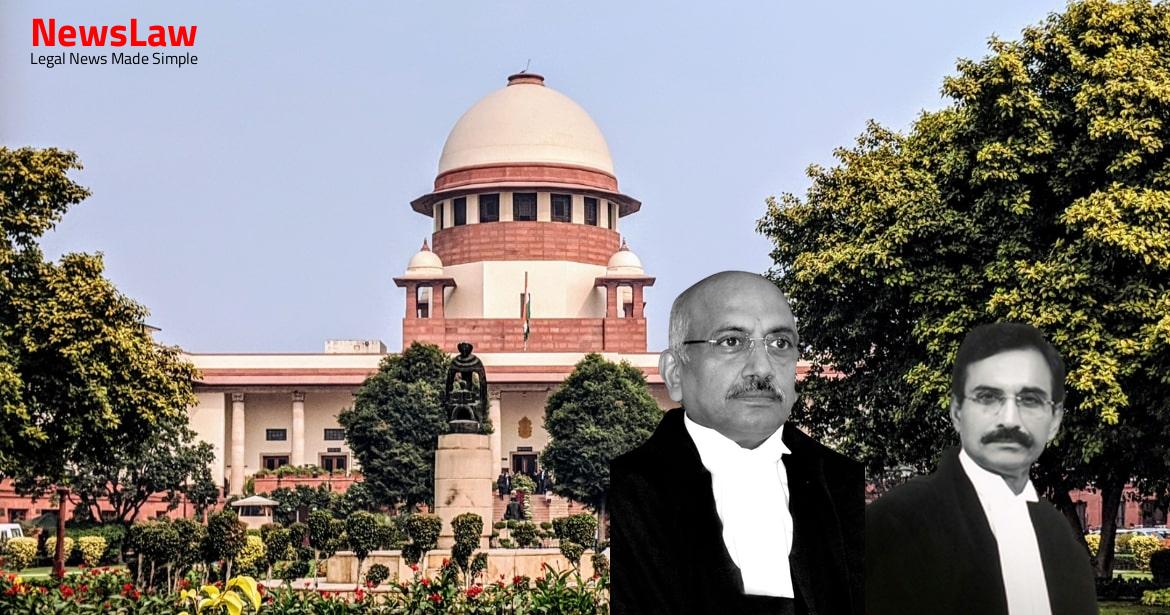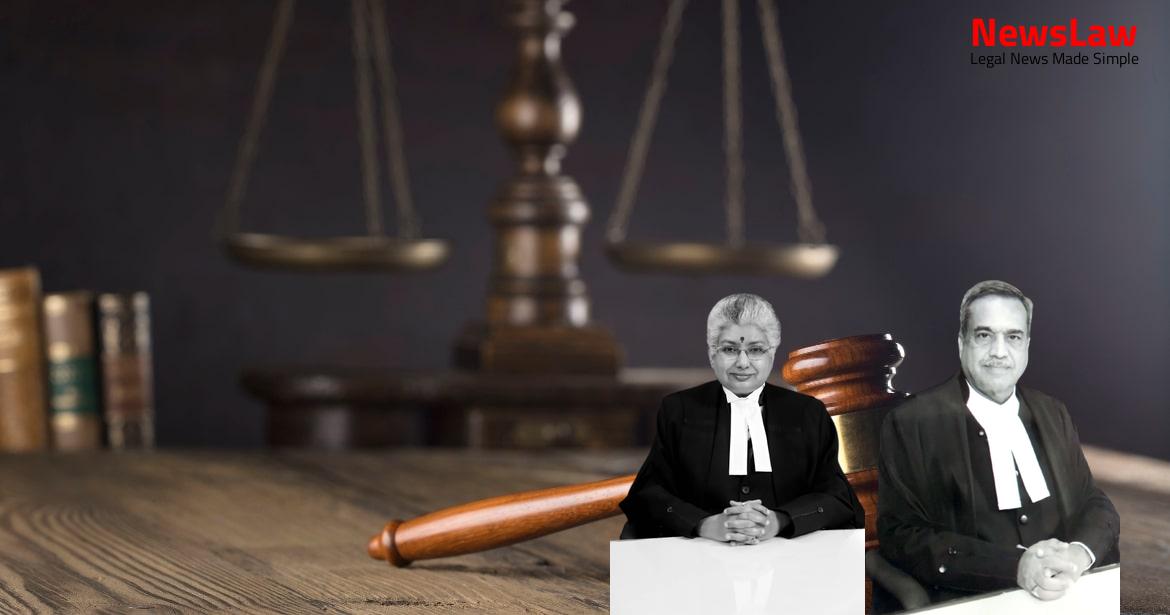A landmark judgment by the Supreme Court of India in the case related to the departmental inquiry of illegal gratification. The case involved disciplinary proceedings against the respondent, leading to her suspension and eventual dismissal from service. The judgment delves into the nuances of judicial review, focusing on legal errors and jurisdictional issues. Stay tuned to know more about this significant ruling.
Facts
- The fingers of both the hands of the Respondent turned pink after being washed in sodium carbonate solution.
- Disciplinary proceedings commenced against the Respondent on 12.11.2013, leading to her suspension.
- The Respondent was dismissed from service on 10.12.2014.
- A raid was conducted on 17.08.2013 where the Respondent was caught accepting illegal gratification.
- The Respondent demanded an amount for the appointment of the complainant’s wife.
- Maternity beneficiary received specific rations on THR day.
- The operation of the Center was found unsatisfactory.
- An FIR was registered against the Respondent by the Vigilance Bureau.
- The Inquiry Officer found the Respondent guilty of the charges against her.
- Inquiry Officer found charge of demand and acceptance of illegal gratification proved.
- Division Bench did not find charge proved; accepted Respondent’s submission of being falsely implicated.
- Criminal trial against Respondent is pending.
- Order of dismissal was based on departmental inquiry; Single Judge disbelieved complainant’s version.
- High Court affirmed Single Judge’s decision in Writ Petition; Appeal dismissed.
- Interference with departmental inquiry orders only allowed in case of ‘no evidence’.
- Single Judge concluded charge of illegal gratification not proved.
- Both Single Judge and Division Bench erred in reappreciating evidence and concluding evidence not sufficient to prove guilt.
Also Read: House Breaking by Night: Verdict Reversal and Reinstatement of Military Personnel
Analysis
- Sufficiency of evidence falls outside the scope of judicial review
- Judicial review focuses on legal errors and jurisdictional issues
- Courts do not re-evaluate or reweigh evidence presented in a case
- The role of the judiciary is to determine the legality of the decision-making process
Also Read: Court of Inquiry Revisited: A Case of Alleged Misconduct and Financial Impropriety
Case Title: THE STATE OF BIHAR Vs. PHULPARI KUMARI
Case Number: C.A. No.-008782-008782 / 2019



